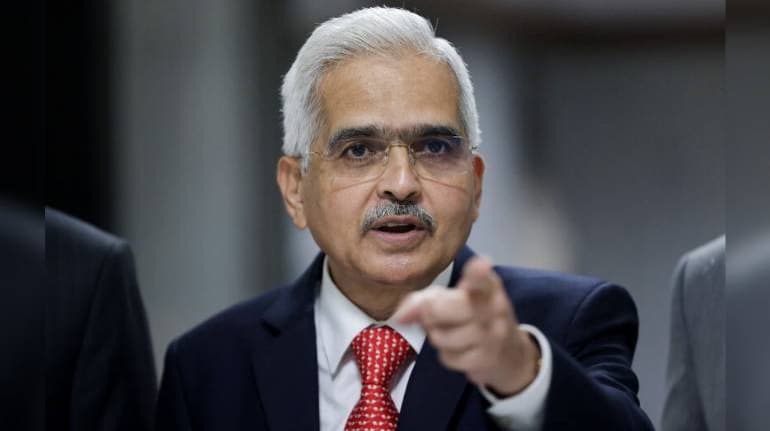



The Reserve Bank of India (RBI) on April 8 kept borrowing costs unchanged at a record low for the 11th time in a row in a bid to continue supporting economic growth despite inflation edging higher in the aftermath of Russia's war in Ukraine. This, said real estate experts, will help maintain the current demand levels as interest rates for both homebuyers and developers are likely to be maintained by financial institutions.
“Given the global headwinds, we welcome the RBI’s continuation of accommodative stance as well as its decision to maintain the repo rate at 4 percent as it will ensure liquidity in the country which will further pump-up investor sentiments. The continuation of the current repo rate regime would ensure that home loan rates remain low, leading to continued buyer interest in the residential sector. This would come as a breather for developers who are facing rising construction costs,” said Anshuman Magazine, Chairman & CEO - India, South-East Asia, Middle East & Africa, CBRE and Chairman, CII Northern Region.
“Despite the disruptions from geo- political challenges as well as inflationary pressures, the RBI recognises the need to maintain economic growth momentum. For the real estate sector, low interest rates for a long period of time has served as a key catalyst for the resurgence of demand,” said Shishir Baijal, Chairman and Managing Director at Knight Frank India.
Also Read | Why homebuyers must register property after getting possession letter
Ramesh Nair, CEO, Colliers India and Managing Director, Market Development, Asia, Colliers is of the opinion that the unchanged repo rate will continue to provide elbowroom to homebuyers, since home loan rates are at a record low. The housing sector saw a revival in 2021 and the continued low home loan rates can further propel homebuyers’ sentiments. The RBI hiked its reverse repo rate, which was expected due to inflationary tendencies seen in the economy.
The real estate industry had been gearing up for an increase in the repo rates, and the fact that this has not happened is obviously positive for home loan borrowers. Developers' input costs have been inflating steeply and a hike in property prices is not more or less inevitable.
Also Read | Housing demand increases by 6.7% YoY
“Moreover, the acquisition cost in Maharashtra has gone up by 1 percent on account of the metro cess applicable from this month. To this sombre backdrop, increased home loan lending rates would have been a considerable setback,” said Anuj Puri, Chairman - ANAROCK Group.
However, there are others who are of the opinion that the rise in construction costs in the recent past is expected to put pressure on developers and may impact residential sales. The transmission of rising input costs to the homebuyers needs to be monitored. The stable mortgage rates are expected to provide temporary relief to the homebuyers, and it is to be seen how long this opportunity of low home loan interest rate prevails.
Samantak Das, Chief Economist, and Head Research and REIS, India, JLL was of the view that while RBI has maintained its policy rate (repo rate) but it has hinted at changing its ‘accommodative stance’ to a ‘less accommodative stance’ - a temporary relief to homebuyers since mortgage rates are likely to remain stable.
Also Read | Godrej Properties launches project in Kandivali, expects sales revenue of Rs 1,000 crore
The decision by the RBI of maintaining the policy rate is a welcome step, but there are hints toward a likely change in the policy rate and stance if the economic environment does not improve as far as inflation and growth dynamics are concerned. The rise in Inflation due to the sharp spike in crude and commodity prices has led to its upward trend and is likely to be more lingering than expected.
There are indications that the opportunity for homebuyers to avail of low mortgage rates is shrinking in the short to medium term, he said.
RBI governor Shaktikanta Das on April 8 said that the risk weights for individual housing loans were rationalised in October 2020 by linking them only with loan to value (LTV) ratios for all new housing loans sanctioned up to March 31, 2022. Recognising the importance of the housing sector and its multiplier effects, it has been decided to extend the applicability of these guidelines till March 31, 2023.This will facilitate higher credit flow for individual housing loans.
Dhruv Agarwala, Group CEO, Housing.com, Makaan.com & PropTiger.com, said that despite inflationary pressures increasing, the RBI MPC has continued with its supportive approach to the economy and maintained a status quo on key lending rates in today’s policy review. Also by extending the applicability of LTV (Loan to Value) ratio till 31st March 2023, which will facilitate higher credit flow for individual housing loans, the RBI has recognised the importance of the housing sector and its multiplier effects on the economy.
Kamal Khetan, Chairman and Managing Director, Sunteck Realty Ltd said that this announcement will encourage banks to continue lending more to individual homebuyers without feeling the stress on their balance sheets. It will effectively result in higher credit flow to the housing sector and eventually make the residential segment a lucrative investment for aspirational homebuyers.
Discover the latest Business News, Sensex, and Nifty updates. Obtain Personal Finance insights, tax queries, and expert opinions on Moneycontrol or download the Moneycontrol App to stay updated!